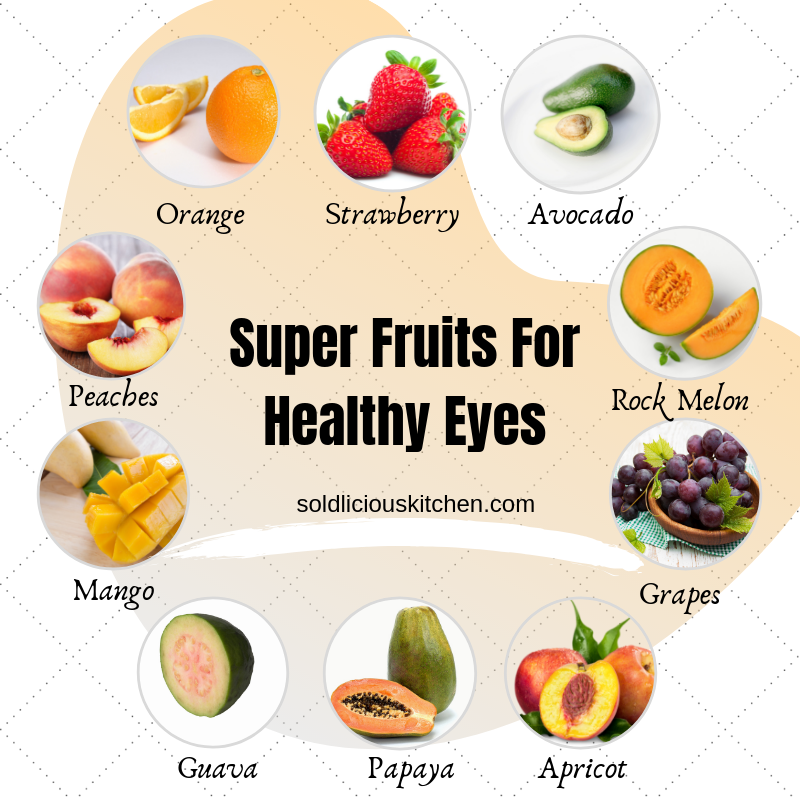Vision health is a critical component of overall well-being. The integrity of our eyesight can significantly impact our daily lives. While genetic factors and environmental influences play substantial roles in vision health, dietary choices also offer significant advantages. Among those choices, fruits serve as a vital source of essential nutrients that bolster ocular health. This article delves into the intricate relationship between various fruits and their positive effects on vision health.
One of the predominant ways that fruits can enhance vision health lies in their rich concentrations of antioxidants and vitamins. Specific nutrients found in fruits, including vitamins A, C, and E, carotenoids, and flavonoids, collectively contribute to the maintenance of good eyesight and reduction of age-related vision ailments.
Understanding these nutritional components can provide clarity on how specific fruits can benefit ocular health.
Vitamins and Their Role in Eye Health
The importance of vitamins in promoting healthy vision cannot be overstated. Vitamin A is particularly significant as it plays a crucial role in maintaining the integrity of the cornea and facilitating good night vision. A deficiency in this vitamin can lead to xerophthalmia, a severe dryness of the eyes, and night blindness. Fruits that are rich in beta-carotene, a precursor to vitamin A, can be exceptionally beneficial. Examples include:
Carrots
Famed for supporting ocular health, carrots are a rich source of beta-carotene, providing a formidable defense against various eye ailments. Thus, incorporating these vivid orange vegetables into one’s diet can enhance vision. Additionally, it may prevent the onset of age-related macular degeneration (AMD), which is a common vision disorder associated with aging.
Dark Leafy Greens
Though not fruits, dark leafy greens such as spinach and kale also merit inclusion for their high concentrations of lutein and zeaxanthin. These carotenoids are linked to lowered risks of developing cataracts and AMD. While the emphasis is on fruits, considering various dietary components in conjunction ensures a more holistic approach to vision health.
Vitamin C and Antioxidants
Vitamin C is another critical nutrient for eye health. It acts as a powerful antioxidant, neutralizing free radicals that can cause oxidative stress, leading to damage in the eyes. In addition, this vitamin helps in the maintenance of collagen in the cornea. Citrus fruits, strawberries, and kiwi are excellent sources of vitamin C and should be avidly incorporated into the diet.
Emerging studies have demonstrated a correlation between high vitamin C intake and a lower risk of cataract development. Consequently, including a variety of these fruits will amplify visual protection.
Fruits Rich in Flavonoids
Flavonoids, another group of phytochemical compounds exhibiting antioxidant properties, are prevalent in many fruits. These compounds work synergistically with vitamins and play a preventive role in age-related vision deterioration. Berries such as blueberries, blackberries, and cherries are teeming with flavonoids. Consuming these fruits may contribute to enhanced blood flow to the retina, ultimately promoting optimal vision.
The Role of Omega-3 Fatty Acids
While fruits are not typically a primary source of omega-3 fatty acids, incorporating fruits that offer supplementary sources, such as avocados, can be advantageous. Omega-3s are crucial for maintaining optimal visual acuity and may assist in the prevention of dry eye syndrome. Additionally, they are known to reduce inflammation and enhance retinal health.
The Comprehensive Benefits of Fruits For Eye Health
Fruits such as oranges, papayas, and apricots can provide a medley of beneficial nutrients. These fruits deliver substantial amounts of vitamins A, C, and E, contributing to overall eye health. Notably, papaya is rich in beta-carotene and antioxidants that can aid in reducing the risk of lens opacification due to cataracts.
Each fruit possesses unique attributes that collectively enhance eye health. Regular consumption of these fruits results in various benefits, including improved contrast sensitivity and adaptation to lighting changes, which are crucial for day-to-day activities.
Considering the incorporation of specific fruits into the diet can significantly bolster ocular health. Furthermore, the synergistic effects of the vitamins, antioxidants, and carotenoids present in these fruits cater holistically to the needs of the eyes. Generating awareness of the relationship between selective fruits and their influences on vision health is paramount in promoting preventive care.
A Holistic Approach to Vision Health
While the influence of fruits on vision health is profound, it is essential to consider them within a broader lifestyle context. A balanced diet, regular physical activity, and routine eye examinations are imperative for sustained ocular well-being.
Furthermore, protective measures, such as wearing UV-blocking sunglasses and limiting screen time, should be adopted alongside dietary interventions. These practices collectively form a salubrious environment conducive to preserving eyesight.
Nutritional Supplements and Consultations
For individuals unable to obtain sufficient nutrients through diet alone, consulting a healthcare provider regarding the use of supplements may be beneficial. Nevertheless, it is paramount to prioritize natural food sources as the primary means of nutrient acquisition. Fruits, being naturally rich in vitamins and antioxidants, should always form the foundation of a vision health protocol.
Conclusion
The eyes serve as a critical gateway to perceiving the world around us, and maintaining their health should be a paramount concern. Regular consumption of specific fruits packed with essential vitamins, antioxidants, and carotenoids can significantly bolster vision health. Not only do these fruits provide the necessary nutrients—we must also integrate them as part of a larger holistic approach that incorporates protective measures and healthy lifestyle choices.
Remaining informed about the beneficial properties of these fruits enables individuals to make empowered dietary choices conducive to preserving their eyesight and enhancing overall quality of life. A proactive stance towards nutrition, especially concerning fruits that promote ocular health, can yield long-lasting benefits well into one’s later years.
